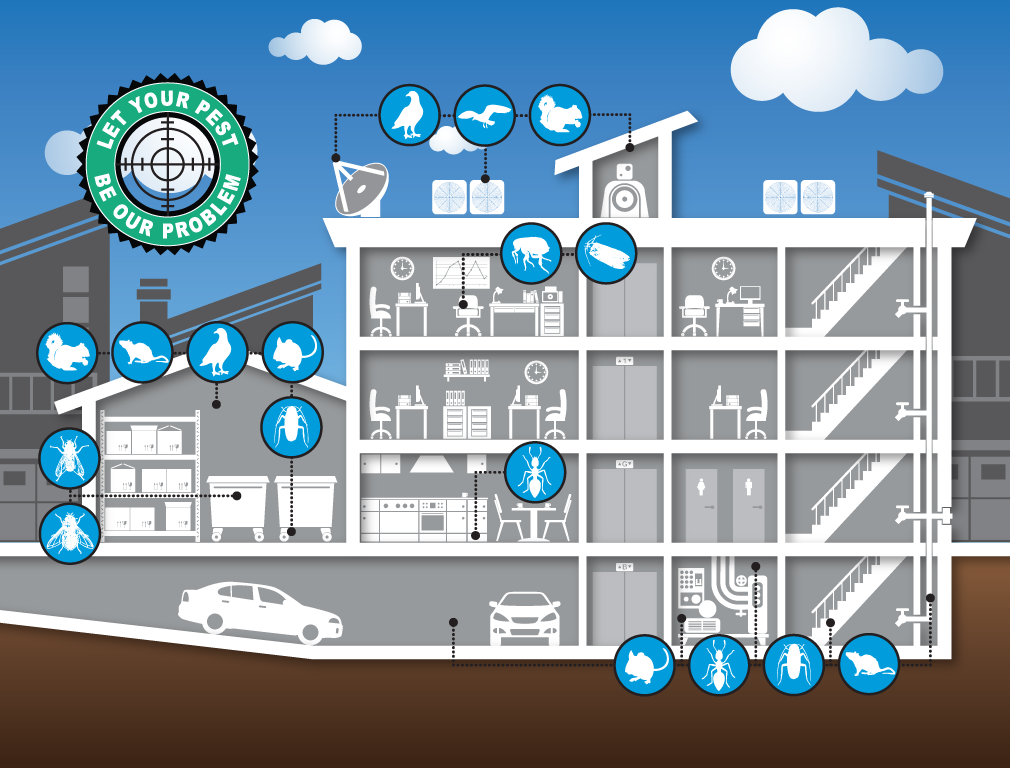Unveiling The Techniques Employed By Pest Control Specialists Beyond Making Use Of Sprays
Unveiling The Techniques Employed By Pest Control Specialists Beyond Making Use Of Sprays
Blog Article
Post Author-Thiesen Gaarde
Are you tired of relying solely on sprays to handle bugs in your home or work environment? While sprays can work, pest control specialists have developed advanced methods that exceed just spraying chemicals.
These techniques not only provide more reliable and lasting services, however also concentrate on reducing making use of damaging pesticides. By discovering these advanced strategies, you will certainly uncover an entire new globe of pest control approaches that are not just effective, but also environmentally friendly.
So, are you all set to take your insect control game to the following level?
Integrated Bug Management (IPM)
If you're searching for a reliable and environmentally-friendly approach to pest control, Integrated Pest Monitoring (IPM) is the remedy you need. IPM concentrates on lasting avoidance and management of insects, rather than merely relying upon chemicals. This strategy thinks about the certain needs and behaviors of parasites, in addition to the surrounding atmosphere.
By utilizing a mix of strategies such as biological control, habitat control, and targeted pesticide use, IPM aims to decrease the reliance on chemical treatments and decrease damage to non-target organisms.
One vital aspect of IPM is monitoring and identifying insects precisely. This entails regularly checking and assessing the pest population, along with determining the details species existing. By comprehending the biology and habits of insects, insect control experts can establish targeted strategies to disrupt their life process and lower their numbers.
An additional essential aspect of IPM is utilizing non-chemical control methods whenever possible. This can include physical barriers, such as setting up screens or securing fractures and holes, to stop parasites from entering buildings. In addition, social techniques, like correct hygiene and waste administration, can help eliminate parasite food resources and breeding grounds.
When chemicals are required, IPM focuses on utilizing them deliberately and as a last hope. This implies picking the least hazardous and most efficient option, using it precisely and only to influenced areas, and complying with all safety and security guidelines. By reducing relevant webpage , IPM decreases the possible threats to human health and the setting.
Biological Control
To additionally enhance the performance of Integrated Insect Monitoring (IPM), the next subtopic we'll check out is the technique of biological control. This method utilizes natural killers or parasites to regulate pests.
Below are 4 key elements of organic control:.
1. Introduction of natural adversaries: In this technique, advantageous bugs or microorganisms are presented to the location infested with insects. These all-natural opponents take advantage of the insects, aiding to decrease their population.
2. Conservation of all-natural adversaries: Rather than introducing new microorganisms, this approach concentrates on developing an appropriate setting for existing useful insects. relevant internet page can be attained with providing food, sanctuary, and water sources.
3. Enhancement: Here, the number of all-natural enemies is increased artificially by breeding and launching them into the plagued location. This helps to rapidly minimize the pest population.
4. Push-pull method: This technique incorporates repellents and attractants to control the actions of insects. Repellents press pests away from crops, while attractants entice them in the direction of trap crops or locations where they can be quickly regulated.
Habitat Adjustment
Habitat modification plays a vital role in bug control by changing the setting to prevent bug infestations. By making changes to the physical features of an area, you can produce an inhospitable setting for pests, making it harder for them to make it through and flourish.
One typical method of habitat modification is getting rid of or reducing possible food sources for pests. This can consist of proper waste monitoring, securing containers, and tidying up food crumbs.
In addition, getting rid of or decreasing areas of standing water can aid control pests like mosquitoes.
Changing the landscape by cutting trees and shrubs away from buildings can likewise protect against parasites from accessing your home.
Conclusion.
So there you have it - the sophisticated methods utilized by bug control experts exceed simply splashing chemicals. Integrated Bug Management (IPM) combines different approaches to efficiently control pests, while biological control utilizes natural opponents to keep parasite populations in check.
Environment adjustment also plays a vital role in stopping insect infestations.
Did you recognize that according to a study, executing IPM techniques lowered pesticide usage by an average of 71%? This not just protects our health and wellness and the environment however likewise conserves cash over time.
